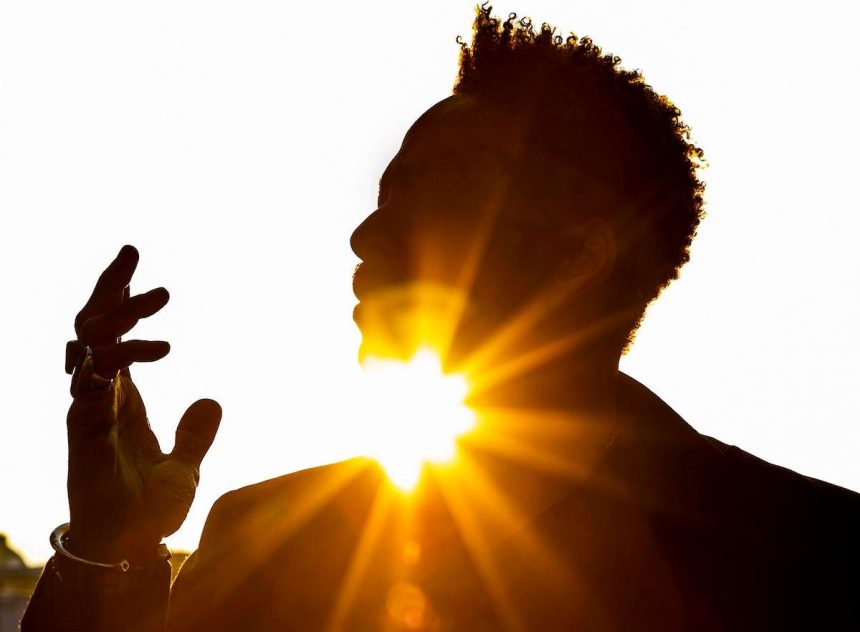As a society, we often ignorantly assume that if we can’t see a visible disability, then the individual must be living a struggle-free life. There is a huge spectrum within each disability, however, and considering that 80% of disabilities are invisible, we need to start being more vocal, and visible, about what we cannot see.
Invisible disabilities (also known as non-visible or hidden disabilities) is when there is nothing external, like a wheelchair or a cane, that signals a disability. These can be temporary, situational or permanent and include visual impairment, hearing impairment, neurological, cognitive and neurodevelopmental conditions, anxiety, depression, chronic diseases like lyme and lupus, multiple sclerosis, but also diabetes, asthma, endometriosis and more. So how can we make the invisible more visible?
The Sunflower Symbol
In 2016, Gatwick Airport’s assistance team partnered with The Airport Passenger Advisory Group and local charities to create the Hidden Disabilities Sunflower network as a way of offering an added layer of support to passengers with hidden disabilities. The Sunflower lanyards provide a clear yet discreet way for someone to indicate that they have a non-visible disability without having to explicitly disclose what they have if they do not wish to. Staff are trained to recognise these lanyards and ask passengers what type of help they need.
Since the launch, thousands of businesses worldwide have joined the global network, including more than 200 airports (Toronto Airport, Vancouver Airport, Berlin Airport, Dubai Airport) and airlines (Air France, British Airways, Emirates, KLM, Ryanair). HSBC is currently rolling out the Sunflower across its offices worldwide and in sports, the Special Olympics World Games Berlin 2023 and 2023 FIFA Women’s World Cup use the Sunflower to tailor their support for people with hidden disabilities.
“There still exists a general lack of awareness and understanding of the range and complexity of disabilities, conditions or chronic illnesses that are not immediately apparent to others, resulting in a lack of conversation and support,” Hidden Disabilities Sunflower’s chief brand officer, Annette Cmela, told Forbes. “It is only by raising awareness of hidden disabilities through education, open and positive communication and providing safe places for individuals to share their needs that we all can help to break down the barriers to discussing hidden disabilities.”
The Visible Way
One startup that is working on bringing more visibility to chronic illnesses is Visible. Harry Leeming, one of its co-founders and the CEO, decided to launch the startup after a mild COVID infection turned his life upside down, triggering a long COVID with debilitating symptoms like chronic fatigue, muscle pain and shortness of breath. Not much is known about long COVID, yet it is estimated that at least 65 million individuals worldwide suffer from it, with cases increasing daily.
“It’s been alarming how little recognition, support and treatment has been available despite the impact it’s had on my life,” Leeming told Forbes. “Even more alarming has been finding out that my condition is nothing new. We’ve known for decades that infections can trigger chronic conditions like Chronic Fatigue Syndrome (ME/CFS), Chronic Lyme and Fibromyalgia, but these conditions have been largely ignored by the healthcare system, leaving millions of people to manage their illness on their own.”
Leeming and his co-founder, Luke Martin-Fuller, launched the Visible app 6 months ago, stating that they now have over 30,000 people using it to manage their symptoms by tracking their heart rate and other biometrics via a fitness tracker.
“By measuring them, we can make these illnesses visible,” says Leeming. “Visible to patients so they can better manage them, visible to researchers so they can better understand them and visible to doctors so they can better diagnose and treat them.”
Disabled And Proud
Because disabilities sit on a wide spectrum, their level of visibility varies. And while some people choose to discreetly camouflage them, others proudly sport their assistive or monitor aids. Actresses Selma Blair and Christina Applegate, who both live with MS (multiple sclerosis), have been photographed with their canes on the red carpet. Similarly, rising model Lila Moss (Kate Moss’s daughter) often poses with her diabetes monitor and insulin pump (she has type one diabetes). By making these aids and devices “cool”, celebrities are helping to remove the stigma that is associated with them.
But businesses and manufacturers often neglect the aesthetic aspect of these products, leaving many to feel like patients rather than empowered and enthusiastic consumers. Thankfully, there are startup brands like Neo-Walk and Cool Crutches that are blazing a new path forward in the mobility aid space, offering disabled individuals stylish, edgy and colourful walking sticks. Another brand that is doubling down on design is Tabuu, which offers a selection of sleek, elegant and sustainable pill cases. Following a reconstruction of her digestive system to remove pancreatic cancer aged 25, founder and CEO Lucy Rout had to start taking medication at every meal.
“I found myself feeling really awkward and uncomfortable getting my tablets out in public, in particular in social settings like a wedding or a dinner with people I didn’t know,” Rout told Forbes. “I searched the media everywhere for a role model my age who was speaking openly about medication and really struggled to find anything. I also searched the market for a stylish, sustainable pill case to carry my tablets in and was really disappointed that next to nothing was available.”
In true entrepreneurial spirit, Rout decided to create the solution to her problem and says that since launching, hundreds of customers have written to her to share their stories of how Tabuu prompted the most interesting conversations – from a 16-year-old who took her pill case to college and felt comfortable talking about her Crohn’s disease for the first time to a woman carrying her HRT (Hormone Replacement Therapy) pills and sparking a conversation about menopause at a dinner table.
And that’s the key really. Talking about our disabilities and illnesses more openly is what will help break down the stigma associated with them and encourage us to be more visible about our respective disabilities – whether that means carrying a pill case, wearing a diabetes monitor, putting on hearing aids or in my case, buying my first cane.
Read the full article here










